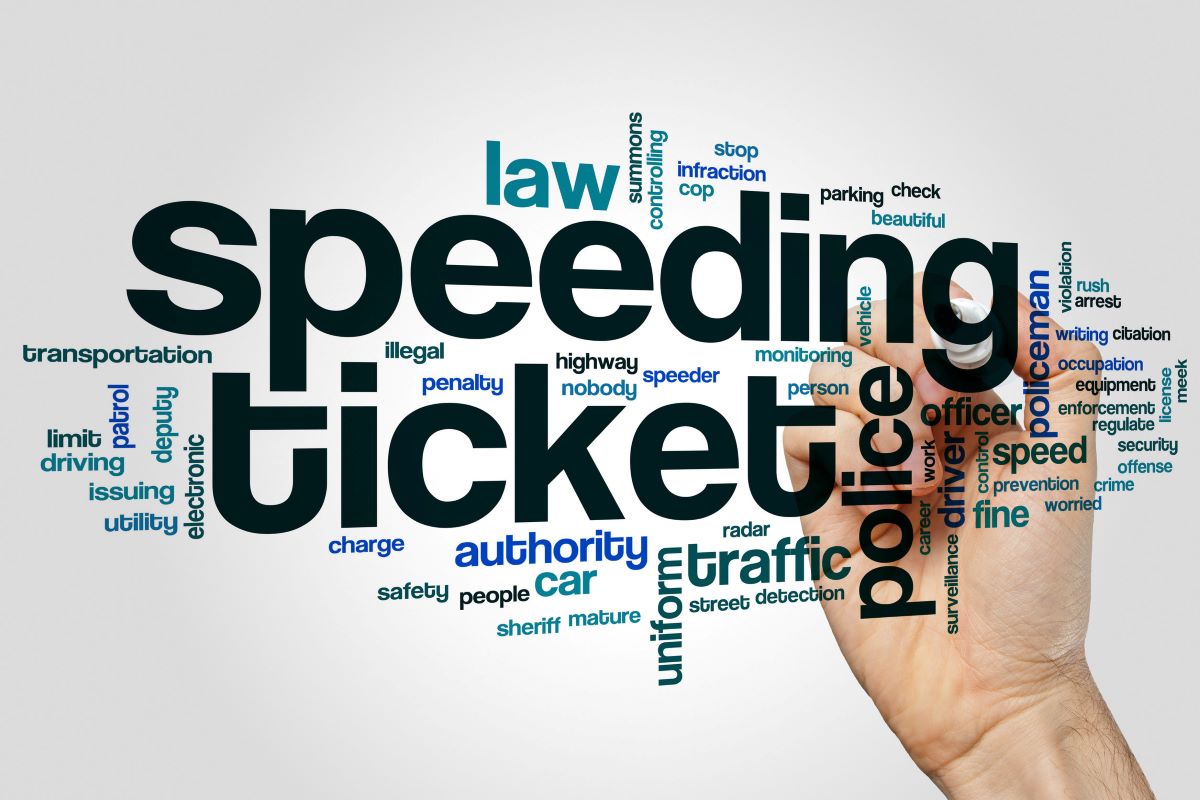Chances are, you know exactly how it feels to be driving along, enjoying your road trip, until you get pulled over and realize you were driving a little too fast. Now, slightly frustrated, you’re trying to figure out how to handle it – do you pay the ticket? Can you ignore it? What happens to you if you ignore it? All of these questions are important to consider, and the truth is, that their answers can get a little complicated. A simple answer is that it depends on the severity of your ticket and that particular state’s laws/rules. You could face a ticket, fines, or loss of license and arrest warrant. If you’ve found yourself in this predicament, keep reading to find out what your options are and what to expect from your out-of-state speeding ticket.
If I am Out Of State Speeding Ticket And Do Not Pay It, What Happens?
The most basic truth is, that ignoring a speeding ticket, no matter where you received it, can have some serious consequences. Depending on the severity of your ticket and the county/state rules in which you received it, you could face a large fine, license suspension, potential arrest warrant, and/or other legal ramifications.
You are always responsible for paying a traffic ticket – though you do have options, such as contesting the charges. Now that you are aware of some of the more serious consequences you could face for ignoring your out-of-state speeding ticket, let’s explore more about when they may become a factor and what your options are for handling the ticket.

State Rules and Regulations
Every state has its own rules and regulations regarding speeding tickets, traffic violations, and levels of consequences associated with each. Depending on the state where you were caught, if you are even more unlucky, they will report it to your home state, or if you are slightly more fortunate, they will not report the ticket to your home state.
Two organizations share data about traffic offenses – the Driver License Compact (DLC) and the Non-Resident Violator Compact (NRVC). For members of the DLC, they are required to report traffic ticket offenses to the state where the driver is licensed – it is then up to the home state to decide if the offense should be added to the driver’s record. Members of the NRVC are required to suspend the driver’s license of individuals who receive tickets from out-of-state and fail to pay them.
(You can find out which states are members of the DLC here, and which states are members of the NRVC here).
You will be driving at your own risk if you choose to ignore your out-of-state speeding ticket and could face some serious ramifications for doing so.
Consequences of Ignoring Your Out-of-State Speeding Ticket
Unfortunately, no matter how bad we want them to, tickets do not just disappear. Once you have received a speeding ticket in a different state, it is recorded with the amount you owe and a date for when it must be paid – typically about 30 days away. During these 30 days, you will be required to submit payment or show up in court on the date and contest the charges.
By ignoring the payment and court date completely, you will be faced with escalating expenses and legal ramifications. Consequences such as misdemeanor charges, license suspension, failure to appear charges, and worst of all, an arrest warrant are all possible punishments for ignoring to pay your ticket.
Here is an explanation of what these charges entail:
- Misdemeanor charges: receiving a misdemeanor charge means you are required to answer the ticket in criminal court, this will often result in driving with a suspended license or expired registration.
- License suspension: the more traffic violations you receive, the more points are assessed against you on your driver’s license; a certain number of points in a certain period can lead to having your license suspended. Driving with a suspended license can lead to an arrest and you must pay a fine and attend a class or wait a designated amount of time before your license can be reinstated.
- Failure to appear: if you fail to appear in court to pay your traffic ticket, you will be charged with a fine on top of the ticket, and you could face a license suspension or loss of your license.
- Arrest warrant: with these escalating charges, a warrant can be issued for your arrest; failure to appear in court, driving with a suspended license, and getting caught with more than one unpaid ticket can all lead to an arrest warrant being issued.
The longer you wait to pay your ticket, the more violations against you will result in more serious ramifications. Be sure to either pay your ticket or contest the charges before the date on your ticket.

What To Do Instead of Ignoring Your Out-of-State Speeding Ticket
You should now understand how impactful an ignored speeding ticket can be, so what can you do instead of ignoring it? One answer would be to pay the ticket, but it should be pointed out that paying a traffic ticket is an automatic admission of guilt and points can be assessed against you on your driving record and insurance. Luckily, there is another option available to you which would be to contest the charges.
Contesting the charges of a speeding ticket is a right that every individual has, whether their chances of winning the contest are high or not. If you do choose to fight the ticket, there are a few things you can do that will help your case.
- Hire an attorney: hiring a traffic attorney can take much of the stress away from you. They have experience handling these claims and can do all the work on your behalf; the attorney fees are also much less than the fee on your ticket itself.
- Provide proof that information on the ticket you received is incorrect: always check the information on your ticket; check the driver’s license number, the car make, model, and color, recorded, speed, location of the incident, etc. Anything that you question should be noted and if you can provide proof, you can likely have your ticket dismissed.
- Demonstrate compliance before your court date: by signing up for a court-approved safe driving course you can show the judge that you are committed to being a better driver and will do your best not to commit another offense.
Committing to contesting the charges of your out-of-state speeding ticket means that you have to support your case. An attorney can be a huge help, especially because they can take care of any court dates so that you don’t have to travel back to the issuing state.
Drive Safely
If you’re reading this article, chances are you have already received an out-of-state ticket for speeding and are looking at what your options are. Hopefully, you understand the importance of taking some sort of action with this ticket and that the ramifications of ignoring it can be quite costly.
If you are lucky enough to not have received a speeding ticket, take this article as a precaution to drive safely and avoid the headache of having to deal with an out-of-state ticket. Of course, we all want to be safe drivers, but sometimes circumstances make it difficult to follow the law – such as speed traps in small, pass-through towns. All in all, pay attention to the road and drive safely, you’ll be able to enjoy your road trips much more!
Related Questions
Are Out-of-State Speeding Tickets More Expensive?
Yes, out-of-state speeding tickets can be more costly than in-state, but not necessarily because of the ticket itself. Travel expenses back to the state and potential lawyer fees can make your out-of-state speeding ticket much more expensive than getting caught at home.
The fine on a speeding ticket often depends on how far over the speed limit you were driving. Driving 7-10 mph over the speed limit can result in a moderate fine, but 10+ mph over the speed limit can be very costly.

How Much Do Speeding Tickets Affect Your Car Insurance?
Car insurance gets more expensive when speeding tickets and traffic violations go on your record. The insurance company may think that you are not a safe driver and are trying to protect yourself in the event that you are involved in a bigger violation or incident.
Typically, your insurance rate will go up by about 25%, or about $354 more than a driver with a clean record. In today’s insurance climate, more companies are creating clean-driving or safe-driving rewards and policies. So, essentially, if you drive the speed limit, avoid sudden stops, don’t get into any accidents, etc. you will be rewarded with a discount or other perks for being considered a “safe driver.”
Most car insurance agencies will maintain a certain rate after you receive a ticket until a specific amount of time has passed. You will usually get the chance to return to a fair rate after you have passed that time without any other violations or after you have proved you are a safe driver – such as through a court-approved safe driving course.

